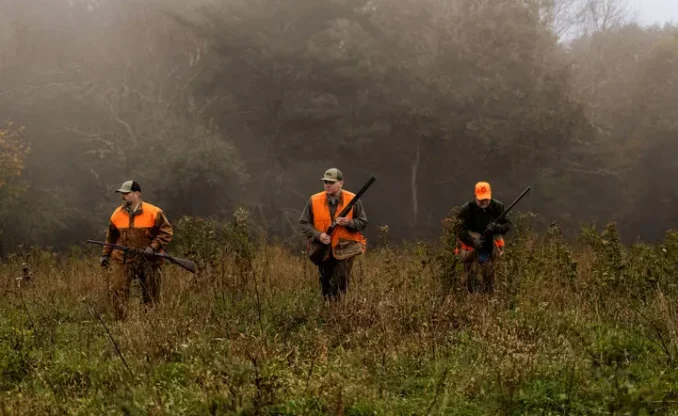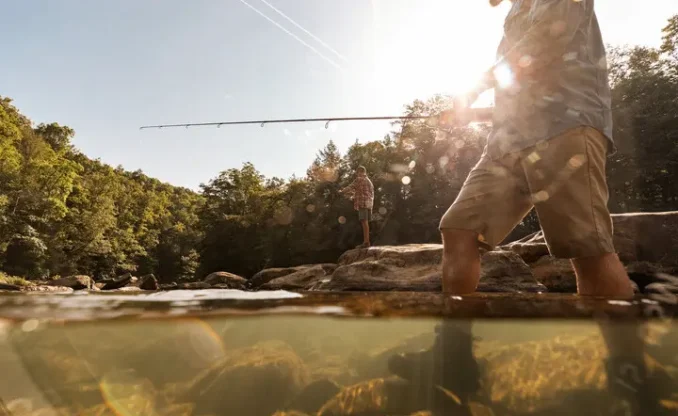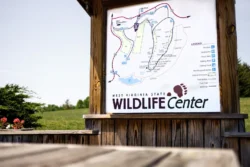Job Description
Nature of Work
Under general supervision, at a full-performance level, is assigned to a geographical area, generally a county or portion thereof and is responsible for interpreting and enforcing state natural resources laws, rules and regulations provided for in the Code of West Virginia for the purpose of conservation and protection of the natural resources of the state. Educates the public on the importance of natural resources conservation and apprehends violators of natural resources laws. Keeps in constant contact with the public in order to carry on a continuous program of education to sporting, civic and community groups and to secure public support of the department’s programs. Applies a personal knowledge of laws and procedures, as well as, judgement and tact, in contacts with the public and co-workers. Periodically attends law enforcement schools, as needed and directed. Responds to any call or report of law violation at any hour of the day or night and field work is usually performed with a senior officer available for call. Performs duty or seasonal undercover or other special assignment, whenever and wherever required by the functions, services and needs of the department. Duties involve an element of personal danger due to the nature of law enforcement work. Work requires considerable travel and outside work in varying weather conditions and difficult terrain. Special assignments and instructions are given, as necessary, by a superior natural resources police officer who inspects and reviews work performed. Performs related work as required.
Distinguishing Characteristics
This is a full-performance level law enforcement position in the Division of Natural Resources, which is normally supervised by a sergeant. The first year as a Natural Resources Police Officer is spent in a training capacity, which is characterized by mandatory successful completion of Basic Police Training required by the Law Enforcement Training Subcommittee and then on-the-job training through initial performance of job duties accompanied by a senior officer or supervisor with gradual assumption of more independence and authority as proficiency is demonstrated.
Examples of Work
- – Patrols assigned territory to enforce state natural resources laws, rules and regulations, paying particular attention to popular hunting and fishing areas; checks for illegal possession of fish or game; inspects fishing, trapping and hunting methods employed and checks game.
- – Interprets fish and game laws to the general public encountered on patrols and to sporting clubs and other community groups, and participates in conservation education programs.
- – Investigates complaints, reports of violations, forest fires, wildlife damage claims and hunting or boating accidents in accordance with state law.
- – Arrests law violators and assists in the prosecution including filing warrants, testifying in court and submitting evidence; inspects boating and rafting activities on state waters to assure compliance with regulations and laws; investigates stream pollution complaints; assists with stocking programs and fish and game surveys; participates in forest fire patrol and investigation activities; and provides security services on state recreational facilities.
- – Assists personnel of other DNR divisions by providing early response, if required, to secure accident scene, direct traffic and/or secure initial samples, conduct investigations or serve warrants.
- – Maintains in proper condition all equipment issued, such as firearm, vehicle, motorboat, two-way radio, uniform, camera, etc.
- – Reviews applications and issues licenses and permits, such as pet, importation and propagation permits, or commercial or menagerie licenses; inspects operation to insure continued compliance with conditions of the permit.
- – Assists and aids in instruction of new officers during their initial field work assignments and gives support with law enforcement activities which are other than routine.
- – Conducts hunter safety and motorboat safety courses.
- – Assists other law enforcement agencies as directed.
- – Performs chemical field tests and submits confirming samples for analysis by the laboratory.
- – May collect orphaned, injured, diseased or nuisance wildlife for proper disposal, transportation or relocation.
- – May assist in searches for lost hunters, drowning victims, downed aircraft, etc., or in times of disasters or emergencies, such as floods, land slides, or severe weather conditions.
- – Completes daily, weekly and monthly activity reports of various types.
- – May perform special security detail assignments.
Knowledge, Skills and Abilities
- – Knowledge of fish and game common to the state, their habitat and principles of fish, game and forest conservation.
- – Knowledge of local, state and federal conservation laws, regulations and policies, enforcement techniques and judicial procedures.
- – Knowledge of first aid and skill in its application.
- – Ability to establish and maintain effective working relationships with co-workers, local, state and federal enforcement officials and the general public
- – Ability to complete an accurate and thorough investigation, prepare factual reports and documentation and testify effectively before the court as a witness for the state.
- – Ability to deal firmly, impartially and courteously with the public.
- – Ability to track and apprehend violators of the law who may be recalcitrant and take them into custody.
- – Ability to operate standard-transmission vehicles, motorboats, mobile radio, hunting, fishing and trapping equipment, and test kits.
- – Ability to walk long distances in adverse weather over rugged terrain.
- – Ability to lift, carry for considerable distances and load heavy and awkward objects, including equipment and large animals, such as full-grown deer.
- – Ability to communicate for the purpose of obtaining, imparting or exchanging information, both written and oral, and carry out instructions.
- – Skill in use and maintenance of firearms, motorboats, mobile radios, vehicles, cameras and other assigned equipment.
Minimum Qualifications:
TRAINING: Graduation from an accredited four-year college or university with preference given to majors in natural sciences, law enforcement, criminology, or criminal justice.
SUBSTITUTION: Employment for a period of four (4) years as a law enforcement officer as certified by the Law Enforcement Training Subcommittee of the Governor’s Committee on Crime, Delinquency and Correction or International Association of Directors of Law Enforcement Standards and Training (ADLEST);
OR an associate degree in natural sciences, law enforcement, criminology or criminal justice plus two years of military police service or two years continuous employment as a law enforcement officer certified by the Law Enforcement Training Subcommittee of the Governor’s Committee on Crime, Delinquency and Correction or International Association of Directors of Law Enforcement Standards and Training (ADLEST).
SPECIAL REQUIREMENTS:
Must be licensed to operate a motor vehicle in West Virginia. Must be able to swim 37 ½ yards fully clothed. Must pass periodic firearms qualification and may be required to pass annual physical examinations. Must pass a physical examination, psychological evaluation and a polygraph examination designed to determine applicant’s fitness for Natural Resources Police Officer and general law enforcement duties.
NOTE:
The probationary period for Natural Resources Police Officers shall be one year from the date of certification by the Law Enforcement Training Subcommittee of the Governor’s Committee on Crime, Delinquency and Correction. If certified at the time of employment, the probationary period shall be one year from date of employment. If selected, applicant must present certifications as stipulated in Section 2, Article 7, Chapter 20, of the Code of West Virginia.
Established: 9/16/93
Title Change: 7/1/2010 per Senate Bill 1003
Revised: 2/15/95, 10/5/2000, 7/1/2010
Effective: 7/1/2010



